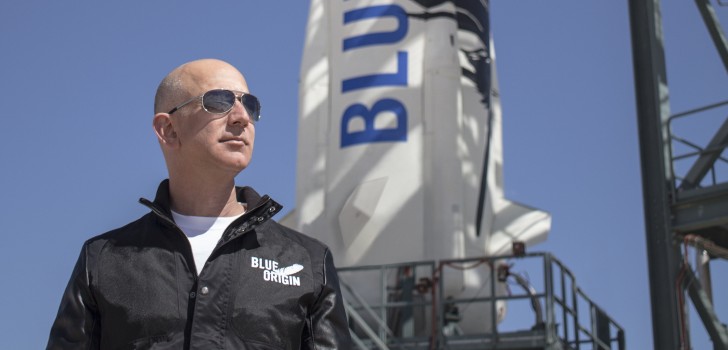The U.S. military’s largest supplier of rockets, United Launch Alliance (ULA), announced on Thursday the acceleration of their work with Amazon CEO Jeff Bezos’ space firm Blue Origin.
The two companies had previously agreed to develop a liquid natural gas rocket as a replacement for the Russian-made RD-180, which currently power the Atlas 5 rocket made by ULA. Following a ban on importation of the RD-180 in response to the Russian invasion of Ukraine, development of a domestically built booster for the Atlas 5 began.
Concerns about the progress of the ULA-Blue Origin partnership’s timeline for production of a replacement booster have been raised due to the fact that Blue Origin’s proposed design uses liquid natural gas, whereas the RD-180 uses kerosene.
Known as the BE-4, the new engine’s fuel of liquid natural gas has lower density than kerosene, and will require larger fuel tanks than the RD-180. Although this will require changes to the current Atlas 5 design, current estimates specify a completion date by 2019.
The BE-4 is based off Blue Origin’s BE-3, which powers its vertical takeoff and landing vehicle known as New Shepard.
Competing firm Aerojet is at work on its AR-1 engine as an alternate to the BE-4 for use in ULA’s future rocket design, the Vulcan. Aerojet is estimated to be 16 months further behind in their design process than Blue Origin is with the BE-4. They have also made a buyout offer of $2 billion to ULA, in a move that would guarantee its AR-1 contract.
Aerojet’s extensive experience supplying ULA with engines have led some to call the offer a sensible one.
The current model has joint ownership of ULA by Lockheed Martin and Boeing , a partnership that has been associated with cost overruns for the duration of its nine-year life.
The Pentagon granted launch authority for spy and military satellite to SpaceX earlier this year as a cost-saving measure. If ULA were to accept Aerojet’s buyout offer, further cost savings might be had by replacing ULA’s current dual owners with a company dedicated to the rocket business, and with a proven track record.
Stay Connected